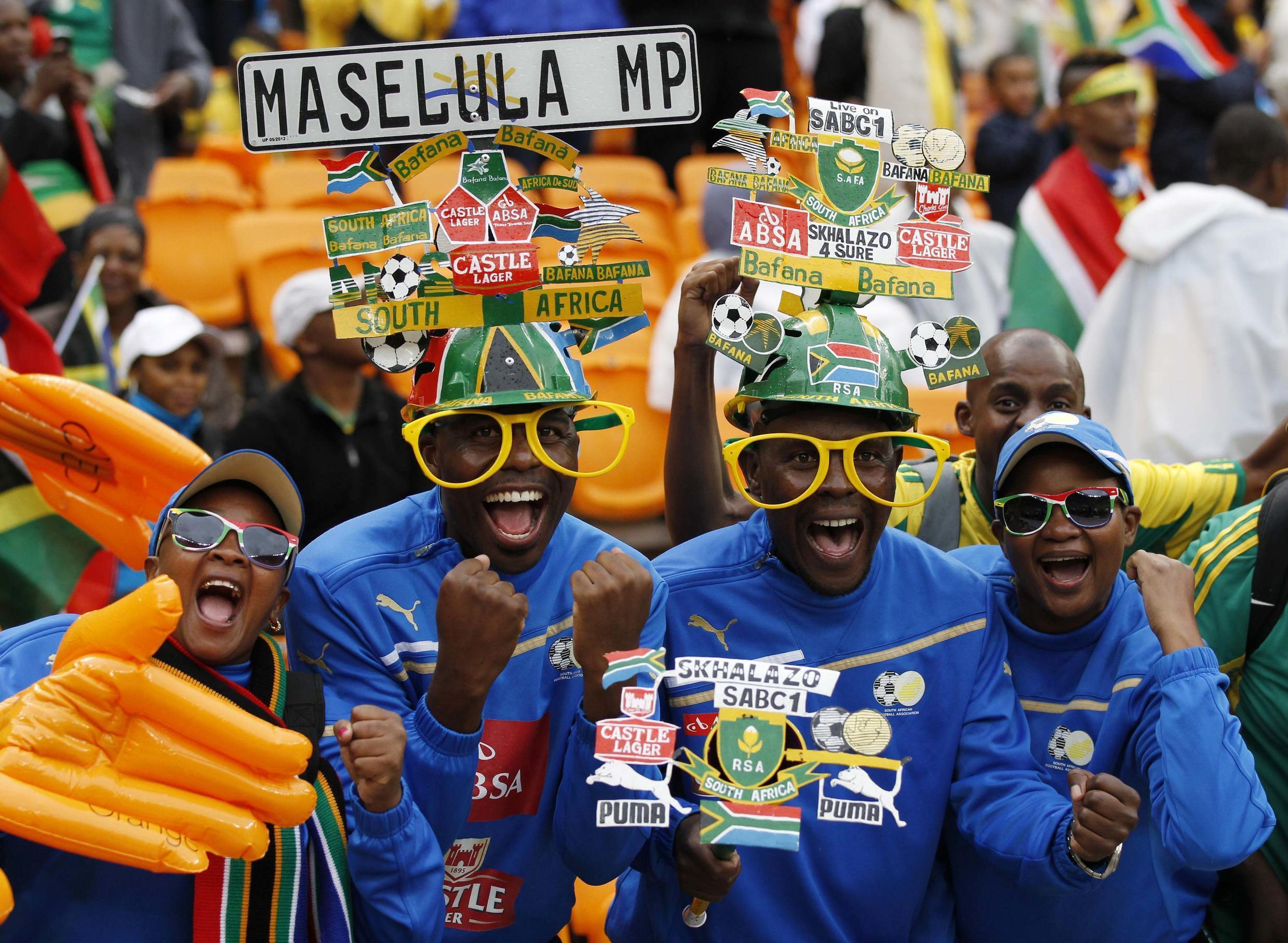Keshi demands respect as Nigeria prepares to face Mali in CAN semi-final
Nigeria boss Stephen Keshi last night echoed Ghana coach Kwesi Appiah’s demand for greater respect to be shown to African trainers. Keshi’s call for more opportunities for local coaches came on the eve of his side’s semi final clash against Mali in Durban .
Issued on: Modified:

“Let’s get this right,” Keshi told a press conference in Durban . “I’m never against a white coach in Africa because I have always worked with white coaches. What I’m saying is do not bring a mediocre coach or a carpentry coach from Europe and tell me he’s better than me. That I will not accept."
Keshi said he is ready learn from "a classic, experienced coach from Europe" .
“But if you want to go round an area of Holland, get a guy and hand him nationality? We have quality ex-players and coaches but the administrators are not giving them the opportunity. I don’t like it.”
Keshi, who has led the Togo and Mali national teams, voiced his concern over the paucity of African coaches as his Ghanaian counterpart Appiah hundreds of miles away in Nelspruit was simultaneously highlighting what he called the lack of respect shown to black trainers.
“There’s no difference between a foreign coach and a local coach," Appiah told reporters ahead of his side’s clash with Burkina Faso. "The only thing is respect. The management shows respect to the coach. The media shows respect to the coach and then automatically the players follow.”

Appiah, who took over from the Serb Goran Stevanovic last April, said he had noticed how he was treated differently to his predecessor:
“I’m not saying I want to be indulged and of course you expect people to let you know when things aren’t going well. But after the game against Cape Verde, which we won 2-0 people were asking me ‘Are you going to resign?’ You don’t need that after a game you’ve actually won and the players are happy in the dressing room. But people feel they can ask you that.”
Keshi faced no such vitriol after his side emerged triumphant from their quarter-final against the pre-tournament favourites Côte d’Ivoire.
While the former international Appiah has endured barbs for his side’s lacklustre display, Keshi has been at pains to reduce expectations ahead of the clash with Mali.
“We need to remember that they are a football country. They have great talent. I was there for two years so I have a lot of respect and admiration for the players. What they’re doing now is what they should be doing because they have the calibre of players and that’s why we have lots of regard for them.”
Reaching the semi-final is a vindication of Keshi’s no-nonsense policy with some of the big stars of Nigerian football. He distanced veterans Obafemi Martins and Peter Odemwingie from the squad and pinned his hopes on a crop of youngsters.
Qualification from Group C came on the final day of games with a 2-0 victory over Ethiopia. The Chelsea forward Victor Moses claimed both goals from the penalty spot to give them the runners-up berth.
On 29 January that position was considered to be a poisoned chalice. It meant a west African derby with the Ivorians and what was assumed to be certain doom at the hands of the golden generation.
But fast forward a week and Côte d’Ivoire’s array of glitterati are back with their clubs and the nation’s football administrators have been left to explain again why it sacked François Zahoui who led them to the final in Gabon last year for the former France international Sabri Lamouchi who’d never held the reins of a high-profile team.
Keshi adds: “The game against Mali might be tougher than the one against Côte d’Ivoire. We have lots of regard for the Malians and we will put everything into it to succeed.”
No choice really. In the wacky world of punditry Nigeria are considered the anointed because they dispatched the favourites.
Mali’s French coach Patrice Carteron says those assumptions may benefit his players.
“In football anything can happen,” he says. “If we are 100 per cent physically and if we play a historic game, maybe we can go to the final for the first time since 1972.”
Back then the tournament was held in Cameroon and Congo collected the trophy. Nigeria last won the Cup of Nations in 1994 when Keshi was in the team.
Nigeria skipper Joseph Yobo says he’s been reminding his players that there is still work to be done:
“It’s been a long time since Nigeria was in the final. But before we can start thinking of winning the tournament, we need to get to the final,” says the veteran of six Cup of Nations campaigns.
“We know the Malians are going to be tough. They know us as well. There are no favourites. It’s going to be 90 minutes, possibly extra time and possibly penalties. We must understand this is the bridge. We have to do everything we can to win.”
Ahead of the game Keshi has to decide whether to reinstate Fegor Ogude to the midfield after he missed the quarter-final through injury.
“It’s a headache,” Keshi confides.
He’ll have an even bigger one though if Nigeria takes the crown.
Daily newsletterReceive essential international news every morning
Subscribe